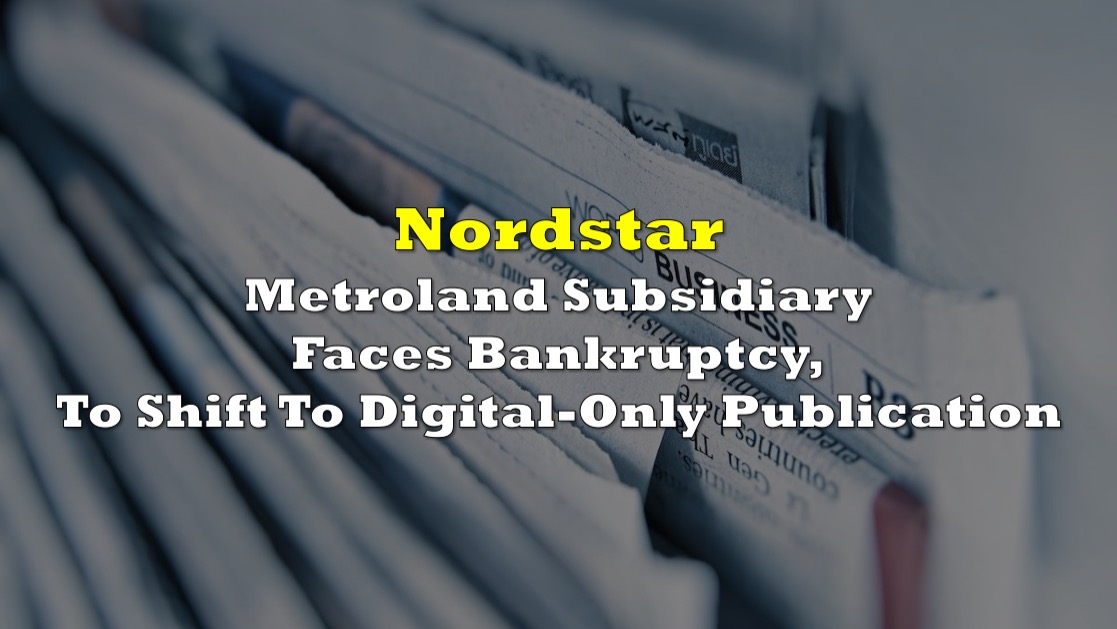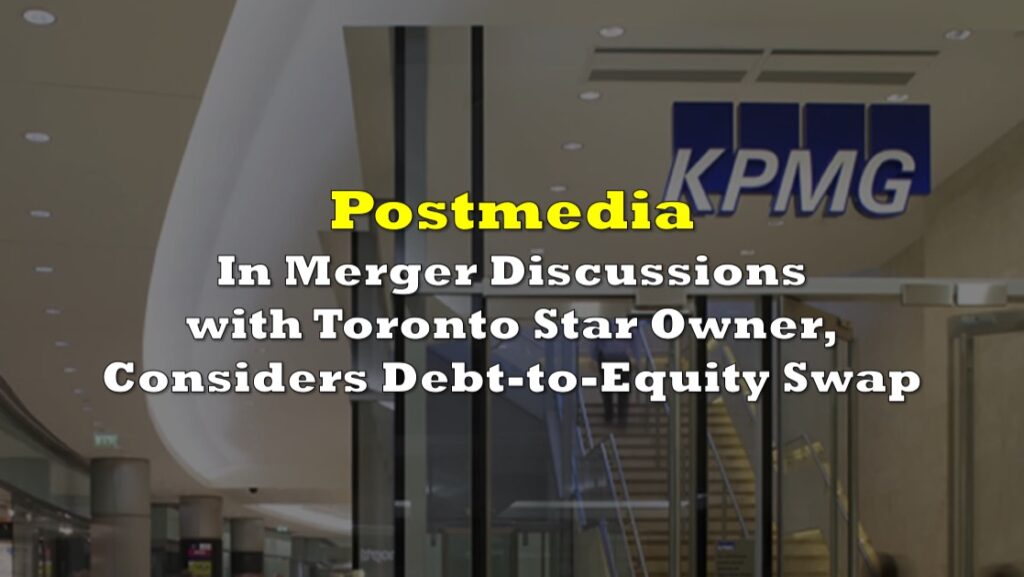Nordstar Capital LP, the publisher of the Toronto Star, revealed its decision to place Metroland Media Group, its regional newspaper division, under bankruptcy protection on Friday. This move resulted in the unfortunate loss of 605 jobs, accounting for two-thirds of Metroland’s workforce, and the transformation of over 70 weekly newspapers into digital-only publications.
The decision to initiate court-supervised restructuring came after Metroland faced significant financial losses due to shifting consumer and advertiser preferences. Court documents indicate that Metroland owes creditors a substantial $74.2 million. In a statement, Metroland emphasized the necessity of this restructuring for the company’s long-term health and growth.
“Today, Sept. 15, Metroland Media announced it will be restructuring its operations and seeking protection under the Bankruptcy and Insolvency Act. As part of this plan, most of Metroland’s 71 community newspapers will move to a digital-only model. The final delivery of your local paper was this week,” the company said in a letter to readers.
This bankruptcy filing adds to the growing list of challenges faced by local news operations in Canada and globally. The migration of advertising spending and reader attention to large online platforms has eroded the revenue streams of traditional media outlets. Consequently, this move signals the end of weekly print newspapers in several Ontario cities, including Barrie, Dundas, Oakville, Perth, and Renfrew, as well as the exit from the flyer-distribution business.
According to the Canadian Media Directors’ Council, an industry association, approximately 448 news operations in 323 Canadian communities shut down between 2008 and April 2021.
Metroland cited the dominance of digital tech giants in Canada’s advertising landscape as a major contributor to its challenges. The company specifically pointed to these giants, such as Facebook parent Meta Platforms Inc. and Google owner Alphabet Inc., for capturing the majority of advertising revenue.
Metroland’s debt extends to its employees, with $16 million owed, according to documents filed by receiver Grant Thorton LLP. Unfortunately, the company stated that it would not be able to provide severance or termination pay due to insufficient funds. Among those affected, approximately one-third of employees come from Metroland’s flyer-distribution operations, and 68 of its 200 journalists will face layoffs.
Carleen Finch, president of Unifor Local 87-M, expressed strong displeasure and offense at this news, stating concern for the affected employees’ mental well-being.
“We are disgusted and deeply offended by this news and the way in which it has been shared with the union and its members,” said Finch. “We have been in weekly meetings with Metroland and weren’t even given the benefit of a conversation before these voice memos and emails started landing in workers’ inboxes.”
Unifor National President Lana Payne expressed the devastating impact on media workers, local news, communities, and democracy, describing the firm’s move as “betraying workers and leaving an information vacuum in many communities.”
“This is devastating. Devastating for these media workers. Devastating for local news. Devastating for the communities who depend on that local news and devastating for the fabric of our democracy,” said Payne. “The horrible irony of this announcement happening on World Democracy Day only deepens our awareness of what this loss will mean.”
The unions also claim that “Metroland Media provided no notice of the layoffs.”
Despite lobbying for assistance from the federal government and seeking to attract more advertisers, Metroland exhausted its funding sources. The company’s largest creditor is Torstar, owed a total of $41.6 million, while it owes $8.4 million to the Canadian Imperial Bank of Commerce and $2.2 million to its printer, Transcontinental Inc.
Nordstar Capital, led by entrepreneur Jordan Bitove, will continue publishing seven daily newspapers in both print and digital formats, including the Toronto Star, the Hamilton Spectator, the Peterborough Examiner, the St. Catharines Standard, the Niagara Falls Review, the Welland Tribune, and the Waterloo Region Record.
This bankruptcy announcement follows Nordstar’s previous attempt to merge with Postmedia Network Canada Corp., the country’s largest newspaper chain. The companies cited the “existential threat” from tech giants as the motivation for the merger. However, talks were abandoned in July due to financial uncertainties and disagreements over debt conversion.
The federal government’s Bill C-18, the Online News Act, was introduced as an effort to compel tech platforms to share revenue with publishers for using their content. Both Nordstar and Postmedia supported the legislation, but it faced strong opposition from tech companies.
In the same way, Unifor also relayed that it is advocating for the protection and strengthening of local news and supported Bill C-18 to reinvest social media-generated revenues in Canadian news organizations.
Metroland’s transition to a digital-only format is expected to reduce costs, but industry experts remain skeptical about the sustainability and profitability of such a strategy. The challenge now lies in maintaining sufficient local news content to retain readers.
Information for this story was found via The Globe And Mail, Toronto Star, and the sources and companies mentioned. The author has no securities or affiliations related to the organizations discussed. Not a recommendation to buy or sell. Always do additional research and consult a professional before purchasing a security. The author holds no licenses.







One Response
How can creditors allow so much credit? I thought good business practice is giving limited credit and to cut them off if credit is not paid. When a colleague ask for loan, i give once, twice and of not paid back, third i do not loan any money. Similarly what was CIBC thinking when credit went past $8 million+; Amazon several hundred thousand, – what was their cut off amount?
Most contractors were surviving from pay cheque to pay cheque….just day before announcing Metroland was seeking protection from creditors, we the contractors filled gas and worked day and night to deliver all the product and have yet to get paid (Metroland held back two weeks worth of contractual monies.
I wish my English was better and that the above comment made sense.